While reskilling has been the buzzword with the current rise of AI, mastery of these skill sets can set you apart
In the midst of the transformative AI era, the importance of upskilling employees has taken center stage, reshaping the very essence of the modern workforce. While the rise in AI has sparked concerns about job displacement, forward-thinking organizations and employees have found a frontier of opportunity here. Rather than succumbing to apprehensions about machines replacing humans, the focus is on key irreplaceable skills that will empower employees to collaborate seamlessly with AI and emerging technologies. The mastery of these strategic indexes will propel employees and the organization to reach new heights of productivity, innovative prowess, and growth.
The three areas primed for upskilling excellence are:
- Leadership Skills
- Sales Enablement Strategy
- Soft Skills
These indexes provide the perfect synergy between human expertise and technological advancements to thrive in the AI-driven landscape.
- When equipped with the ability to inspire and guide teams in this era of disruptions, leaders become the driving force behind strategic evolution. Investing in leadership training is a promise well kept.
- Similarly, in the realm of personalized and data-driven sales approaches, the value of the right tools, training, and resources in sales enablement strategies cannot be understated.
- Furthermore, soft skills are crucial qualitative attributes that help sharpen hard skills. Custom eLearning development can help improve critical thinking, emotional intelligence, networking, and more soft skills considered vital components to help collaborate effectively with technologies. Together, these elements drive strategic excellence, stability, and economic growth.
Leadership Skills
The traditional models of leadership are becoming outdated as organizations face unprecedented challenges, including digital transformation, shifting consumer preferences, and global crises. Effective leadership training equips executives and managers with the skills and mindset needed to navigate these turbulent waters. Moreover, leadership training is the ultimate rehearsal space. It’s where leaders gear up, embrace growth, and embark on a transformational journey. Today, leaders are expected to not only inspire and guide teams, but also excel in the modern workplace environment. Whether it’s diversity to boost innovation, accountability in the workplace, or coaching for performance and developing organizational talent, leaders today need to be equipped with additional skills to take organizations forward.
Five courses are trending this year, and we are seeing companies across industries invest in training their leaders in:
- Influencing Others
- Building Trust and Credibility
- The Diverse and Inclusive Workplace
- Mindfulness in the Workplace, and
- Preparing for and Having Difficult Conversations
Explore what each of these topics means and how they add value to your leadership development toolbox. Further, here is a case study about how a custom learning solution was initiated to educate the top brass on strategic workforce planning. Learn more about leadership courses, and the right ones for your employees. Explore ways to create, deliver, and measure outcomes.
Sales Enablement Strategy
It’s no secret that organizations that invest in their sales force’s development position themselves for sustained success and growth. Refining sales enablement through effective sales training is a strategic imperative in the current competitive landscape.
Sales teams are the lifeline of the organization driving revenue and growth. Whether it’s skills development, sales coaching, or revenue enablement and global sales education, the sales teams need training and a platform to hone their skills. For today’s fast-paced sales teams, only an agile, iterative, and learner-centric approach to learning will make the cut.
Such training efforts provide valuable insights and the strategic prowess to curate a comprehensive sales enablement strategy. Training programs drive lasting behavioral change and help learners thrive in the future of work. Here’s a case study on how an American banking giant relied on custom training solutions for its sales team to find success with new business goals and sales strategy.
Do you have a multi-faceted, remote sales team? Create and deliver training or certification programs that are quick, effective, and practical. Learning curriculums delivered via eLearning or Instructor-led can be made immersive and impactful. Understand when and how to use the right training modality to motivate sales teams and make them want more.
Soft Skills
Soft skills are crucial attributes that also help sharpen hard skills. These include communication skills, critical thinking, conflict resolution, and more for employees. Such skills are essential building blocks that define the employee and will remain supreme despite technological advancements.
Soft skills also enhance productivity, innovation, and career advancement, making employees more valuable assets to their organizations. Additionally, investing in soft skills training boosts employee satisfaction, leading to higher engagement and improved overall performance. This article sums up the role of soft skills in creating a future-ready workforce. Further, it also illustrates the 5 best practices to get started with soft skills training at the workplace.
Here’s a case study from The American College of Chest Physicians that primarily focused on improving the quality of conversations between physicians and patients about clinical drugs. A game-based learning approach that also included scenarios and branching paths scored high on engagement and knowledge retention.
While we’ve established the importance of upskilling employees with these essential skills, L&D Managers must think about choosing the right learning strategy and learning modes to maximize impact and outcomes. Whether that means opting for off-the-shelf courses or going with a learning partner for custom eLearning development, and delivering via instructors or through learning management systems, take time to understand the needs and preferences of your learners.
Immersive methodologies like custom learning games and gamification strategy or simulations have the potential to dramatically improve learning outcomes while engaging learners. Consult with a learning strategist to understand the various mediums and choose the one best suited for your business needs and ROI.







_Blog%20Featured%20Image%20800x500.png?width=388&name=Recap%209-4-25%20Why%20You%20Should%20Train%20Sales%20Leaders%20Like%20Cats%20(Not%20Dogs)_Blog%20Featured%20Image%20800x500.png)
